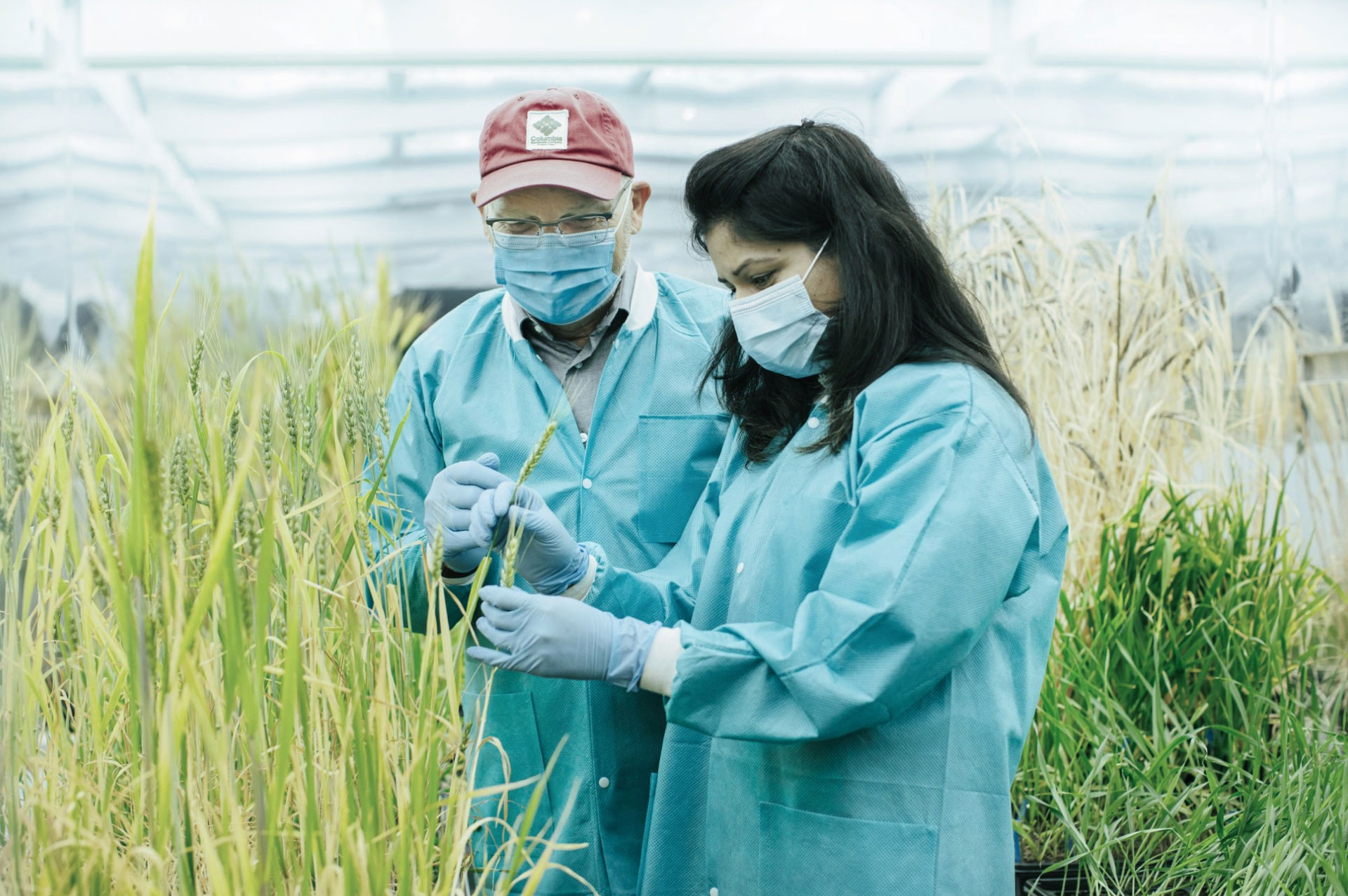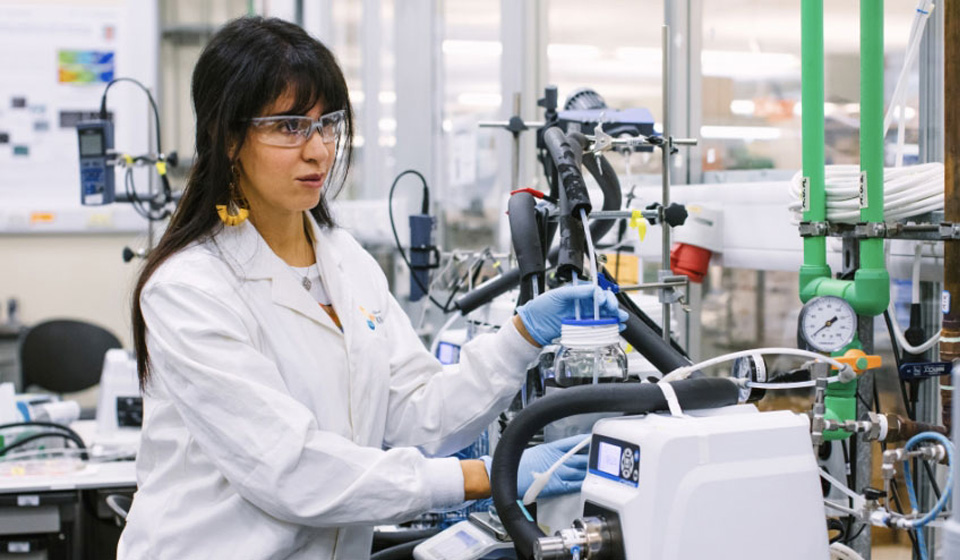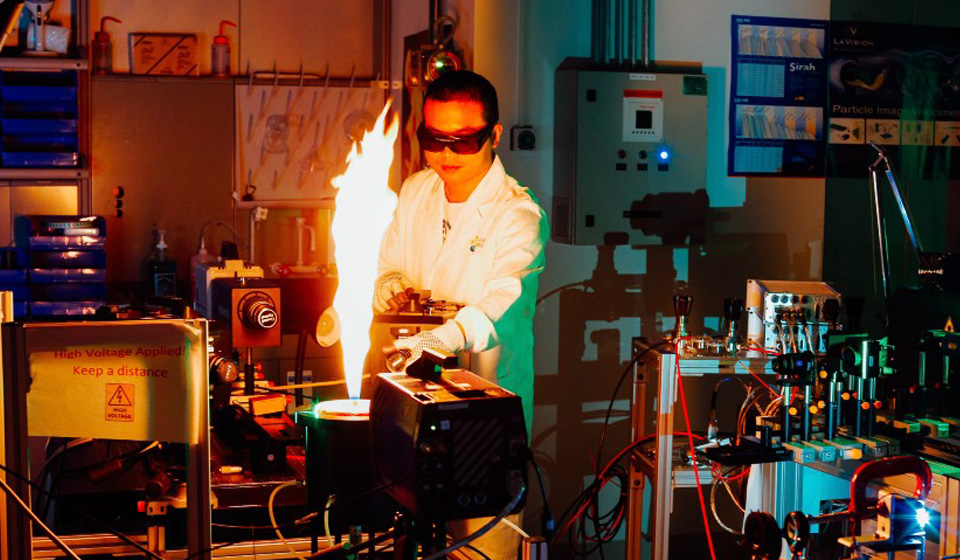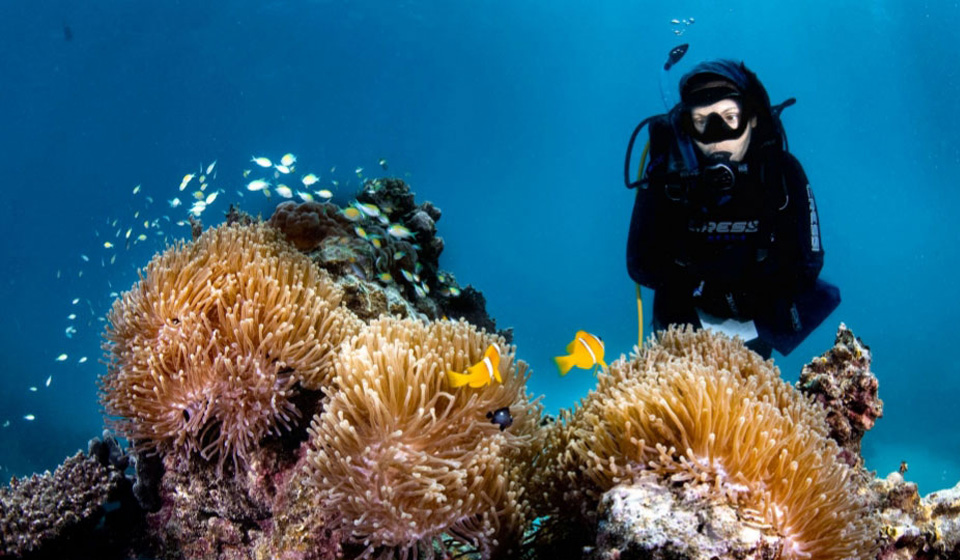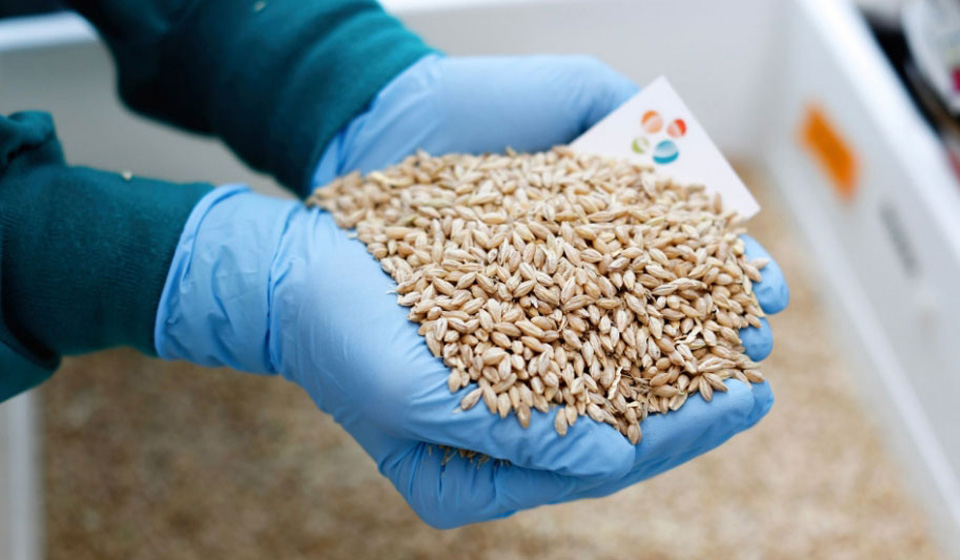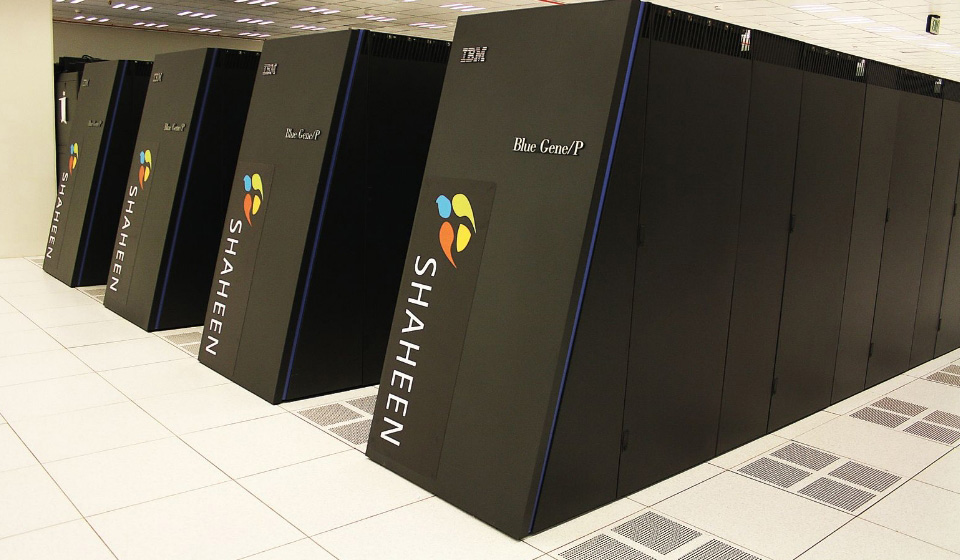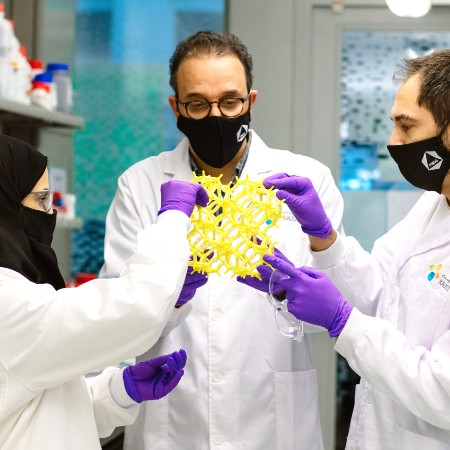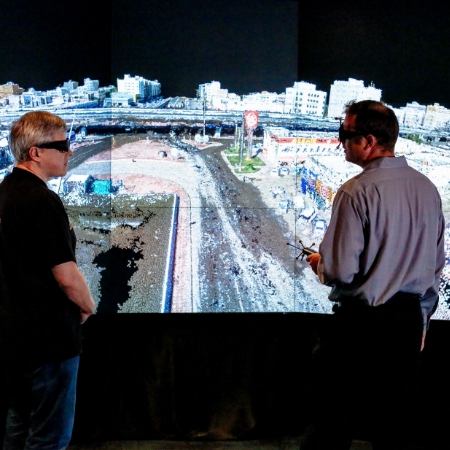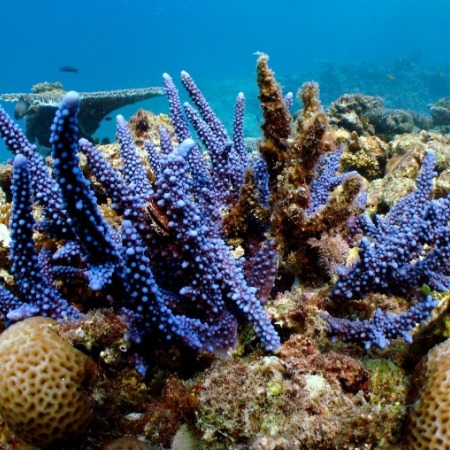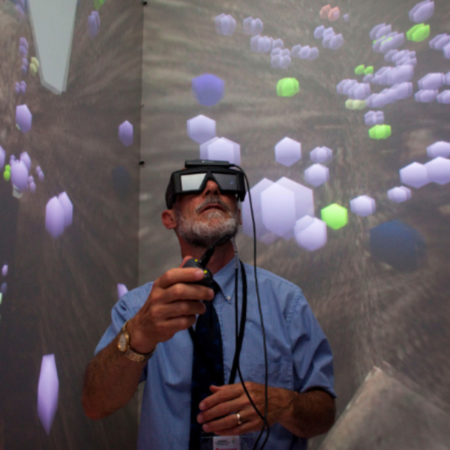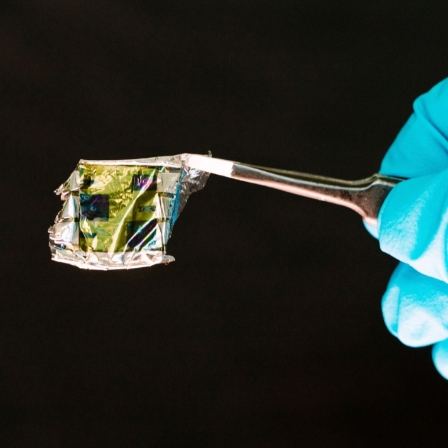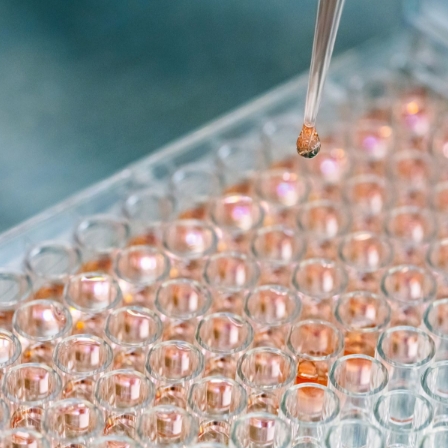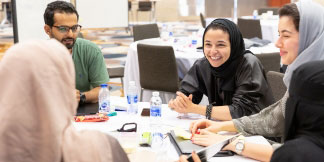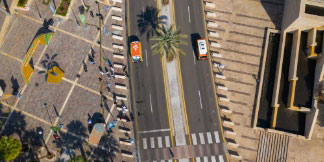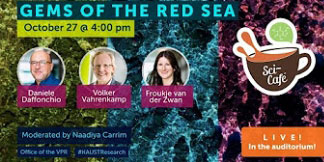KAUST’s new research strategy aligns with the Kingdom’s RDI priorities to accelerate our positive impact for the betterment of the Nation and the world. Focusing on four research pillars – Health & Wellness, Sustainable Environment & Essential Needs, Energy & Industrial Leadership, and Economies of the Future. Through unique graduate education underpinned by collaborative research, we aim to provide students with the knowledge to become agents of change towards global sustainable development.
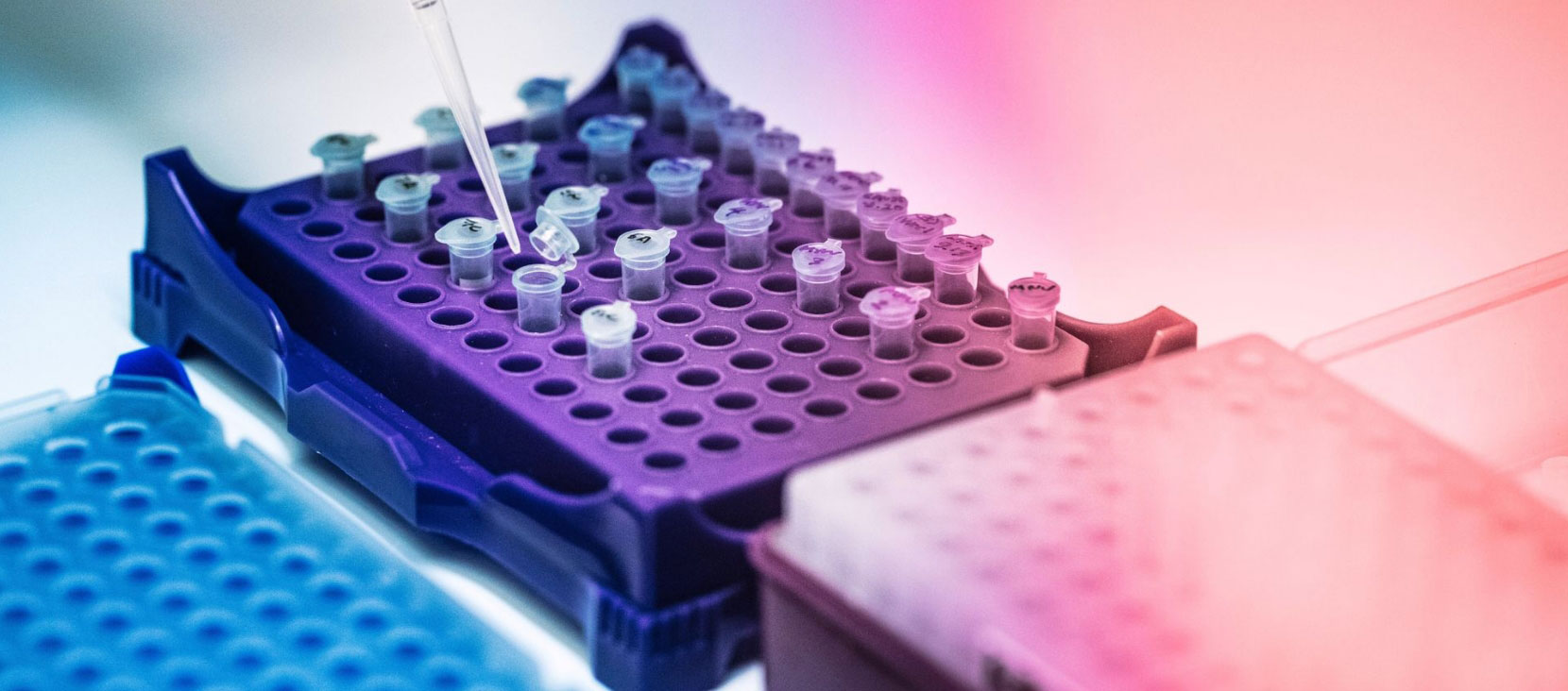
OUR RESEARCH
WATER
Freshwater is a primary necessity for the livelihood, health, and development of human society. In Saudi Arabia, 60% of the country’s water comes from desalination.
To better secure and manage the Kingdom’s water resources KAUST researchers are exploring new approaches to more efficient and affordable desalination and turning byproducts of this desalination and wastewater into a usable and value-adding resource, ultimately improving the sustainability and management of water resources.
With a global trend towards smart solutions, decentralized wastewater treatment, emerging sensors, and remote sensing tools are also being explored to provide innovative ways of managing the water cycle of future sustainable smart cities.
ENERGY
As energy demand increases with its growing population, Saudi Arabia aims, as part of Vision 2030, to transition the Kingdom’s energy mix by displacing liquid fuel for energy generation in favor of natural gas, hydrogen, and renewable energy sources.
Research on Energy at KAUST focuses on exploring and providing innovative solutions on key smart and sustainable city elements and developing carbon-free energy sources that aid in the optimized use of fossil resources, minerals, and water thus making fuels and combustion more efficient, clean, and economical.
KAUST is also working to address the four R’s of carbon management in a circular carbon economy by reducing energy consumption through efficient air conditioning, displays, and lighting; removing and capturing CO2 using innovative materials, processes, and technologies such as direct air and point emission source CO2 capture; reusing carbon through storage via geo-based solutions, conversion of renewable energy to formic acid, and development of catalysts that can turn CO2 into platform chemicals for fuels, such as methanol and syngas; and recycling CO2 to be used in combination with green hydrogen to produce e-fuels for sustainable mobility.
ENVIRONMENT
The Kingdom has recently launched The Saudi Green Initiative, which aims to protect Saudi Arabia’s precious environment. Concomitantly, environmental stewardship is deeply rooted in KAUST genesis.
Our research provides innovative solutions to environmental monitoring, forecasting climate, weather and extreme events, and the conservation and restoration of coastal and marine ecosystems.
Ongoing projects include recycling CO2 via nature-based solutions, developing algae farming for chemical synthesis and animal feed production, producing state-of-the-art gas sensing technologies for air pollution, and using modeling techniques to study and predict the circulation and the climate of the Saudi marginal seas.
KAUST researchers are also taking advantage of the Red Sea as a living laboratory to develop biotechnologies that protect, restore and enhance coral reefs, by using innovative nursery strategies or utilizing microbial resources, such as coral probiotics, for the restoration of impacted reefs.
FOOD
In Saudi Arabia and globally, the food system consumes 66% of global water supplies and 30% of global energy supplies, occupies 50% of all land used by humans, and emits 33% of all greenhouse gases.
KAUST researchers are using a multi-pronged approach to develop innovative field and greenhouse production systems for crop plants. Flexible, lightweight, easy-to-install thin-film solar cell screens and semi-transparent solar cell windows on greenhouses are used to both optimize plant growth conditions and generate electricity. Novel research on date palms is boosting global fruit production.
Fresh vegetables are grown using saltwater technology that reduces typical greenhouse cooling requirements and ensures efficient plant growth. Organic waste is recycled for desert agriculture, increasing food security while significantly reducing water consumption and desertification.
HEALTH
KAUST researchers are tackling global health issues and developing the next generation of smart-health technologies that will transform fundamental scientific discoveries into robust solutions to prevalent diseases. Significant efforts have been made in our response to COVID-19 with the development of rapid and affordable diagnostic platforms, genomic analysis of the virus and bioinformatic tools to help track the spread and evolution of the disease. KAUST also contributes to open platforms that share up-to-date pandemic data with the public.
DIGITAL
The impact of digital technologies on our lives is growing rapidly. At KAUST, research in computer science and engineering pushes the limits of computer performance and contributes to innovative solutions that can accelerate sustainable development.
KAUST researchers in the digital domain contribute from underwater communication solutions to the necessary technology for next-generation aviation. Drone technology is used for visualization and 3D modeling across many sectors, including archaeology, agriculture, and aquaculture. Smart drills pave the way for enhanced drilling performance and wellbore management in the oil and gas sector.
Cybersecurity and digital resilience research aim to ensure online systems are protected against sophisticated threats, including the combination of faults and attacks, securing the finance sector, public administration (e-government), social networks, and e-biobanks.
INTERNATIONAL COLLABORATION & PARTNERSHIPS
Synergistic partnerships with top-tier academic institutions and leading international innovation hubs can create opportunities and networks for our people to drive global impact at unprecedented speed and scale.
As the need for sustainable development practices increases globally, KAUST supports the development of productive and sustainable partnerships. Through a comprehensive program of evaluation and monitoring, the Research Translation and Partnerships office targets strategic research partnerships that strengthen the university research outcomes.
RESEARCH INITIATIVES FOR SUSTAINABILITY
Find out more about ongoing KAUST initiatives and projects that provide the world with sustainable solutions for pressing global challenges that align with the Kingdom’s RDI priorities.

